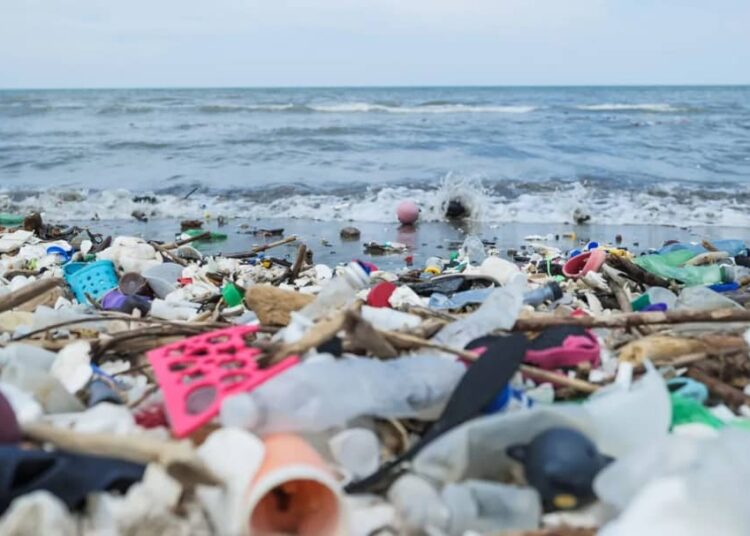The urgency of addressing plastic pollution in the oceans is a critical issue that requires immediate global action. According to the UN Environment Programme (UNEP), plastic pollution in oceans is on a rapid increase, with projections indicating that if no action is taken, plastic discharge into aquatic ecosystems could nearly triple by 2040 (UNEP – UN Environment Programme). This increase is primarily driven by global population growth, changes in consumption patterns, and broader market access which collectively contribute to higher waste production.
The consequences of this escalation are severe, affecting human health, biodiversity, climate, and the global economy. Currently, plastics account for approximately 85% of marine litter, and by 2040, it is estimated that between 23-37 million metric tons of plastic waste will enter the ocean annually. This translates to about 50 kg of plastic per meter of global coastline. The potential impact on marine life is devastating, with risks of toxification, behavioral disorders, starvation, and suffocation facing species from plankton to mammals.
The economic implications are also significant. The costs associated with the impact of marine plastic pollution on tourism, fisheries, and aquaculture, alongside clean-up projects, were estimated to be between $6 billion to $19 billion annually in 2018. By 2040, there is a projected annual financial risk of $100 billion to businesses if governments enforce waste management costs based on expected volumes and recyclability.
Efforts to combat this crisis include transitioning from fossil fuels to renewable energy, eliminating subsidies for fossil fuels, and moving towards more circular economic models where the life cycle of materials is maximized and waste is minimized. Furthermore, there’s a growing recognition of the need for robust global cooperation and a coordinated approach that spans national borders and sectors.
In addressing this monumental challenge, the focus is not just on mitigating the existing damage but also on preventing future harm by transforming production processes, consumer behavior, and waste management practices across the globe. The upcoming discussions at the UN Environment Assembly will be pivotal in setting a globally coordinated agenda to tackle this pressing issue.
The Casinoenligneguru team has prepared recommendations that can help mitigate the impact of plastic pollution in the oceans and promote a more sustainable interaction with our planet’s marine environment.
| Causes of Ocean Plastic Pollution | Recommended Actions to Address Pollution |
| Overuse of Single-Use Plastics | Reduce consumption – Encourage the use of reusable products and the implementation of policies that restrict single-use plastics. |
| Inadequate Waste Management | Improve recycling and waste management infrastructure – Invest in better recycling facilities and enhance waste collection and processing, especially in developing countries. |
| Industrial Discharges | Regulate and monitor industrial outputs – Strengthen regulations on industrial waste treatment and enforce penalties for non-compliance. |
| Consumer Behavior | Educational campaigns – Increase public awareness about the impact of plastic waste and how to reduce it through responsible consumption and proper waste disposal. |
| Lack of Adequate Policies | Legislative actions – Implement stricter laws on plastic production and disposal, and promote international agreements to manage plastic waste globally. |
| Fishing Industry Waste | Fishing gear recycling programs – Implement programs to recover and recycle fishing gear and enforce regulations to prevent gear loss. |
We’ve got the edge. Get real-time reports, breaking scoops, and exclusive angles delivered straight to your phone. Don’t settle for stale news. Join LEADERSHIP NEWS on WhatsApp for 24/7 updates →
Join Our WhatsApp Channel










